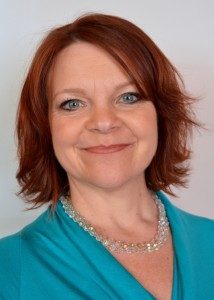
“Clients have such unreasonable expectations…” If I had a nickel for every time I’ve heard that, I’d be a gazillionaire. I can’t argue with you, they do have expectations and sometimes they are also unreasonable:
A client wanting you to call them with bloodwork results. Reasonable.
A client who wants to keep you on the phone for 30 minutes about the bloodwork results. Unreasonable.
A client wanting to wait in the practice while their pet has surgery. Reasonable.
A client wanting to be in the O.R. smudging sage while their pet has surgery. Unreasonable.
A client needing a follow-up call because they have a lot of questions about the diagnosis. Reasonable.
A client who wants your cell phone number so they can call you over the weekend. Unreasonable.
There are some interesting dynamics at play here. One is that in vet medicine, we are a service industry and because clients pay us directly for these services, certain expectations exist that perhaps don’t when it comes to human healthcare. So while we do have to strive to treat clients well, we also have to know when to say “no”.
We get angry, frustrated and resentful with client’s when we think their expectations are unreasonable for two reasons:
Firstly, if we have no boundaries in place then we get angry when we feel taken advantage of. But how does the client know you have 12 other clients to call, have a big surgery to do or have to pick up your kids in 15 minutes unless you enforce and communicate your boundaries? “Ms. Jones, I only have five minutes to talk but I didn’t want you to have to wait until tomorrow to get the results on Duane’s T4.”
 I’ll be completely honest, YOU are the only person that is ever going to call my house to talk to me about my dog. No other person in my life is going to pick up the phone and call me just to talk about Ernie. So when you do call, I’m probably going to milk it for all it’s worth! All kidding aside, it is your job to define, decide and enforce when that call has to end as I’m likely to keep talking to you all night about my little puggy.
I’ll be completely honest, YOU are the only person that is ever going to call my house to talk to me about my dog. No other person in my life is going to pick up the phone and call me just to talk about Ernie. So when you do call, I’m probably going to milk it for all it’s worth! All kidding aside, it is your job to define, decide and enforce when that call has to end as I’m likely to keep talking to you all night about my little puggy.
I realize that may not be easy for you as you are likely a card-carrying member of the People Pleasing Club. Many in helping professions are, but that doesn’t make it healthy. You have to be ok with pissing some people off, you just have to be ok with that. If your intentions are honorable and you recognize that you too have needs that need to be met so you don’t become exhausted and depleted, then you have to realize everyone may not like it and that is ok.
This starts with being honest with clients to let them know what is acceptable and not acceptable. What is ok and not ok.
We may not want to emulate human healthcare in all ways but if you want a good lesson in boundaries, they seem to have this down. Most doctor’s offices have a sliding glass that separates us from them. How much clearer can they make it? Can you get your blood results when it’s your Dr’s day off? How easy is it to get the Dr on the phone? How long will she or he talk to you on the phone? Just observe, I’m not saying those are necessarily standards we should all aim to duplicate but can we not learn a thing or two?
Secondly, I believe we get angry and feel resentful towards client’s and their “unreasonable” expectations when we don’t claim our voice and sense of self. When we lose ourselves in helping and put everyone’s needs above our own. When we don’t feel as though our need to eat lunch or leave at a certain time to get to that painting class is a need worthy of honoring.
Consider for a second that perhaps their expectations are unreasonable simply because we haven’t communicated what their expectations should be, in a professional and kind matter that aligns with our own integrity.
You have so much more influence over this than you realize.
The truth is that clients have expectations. They expect you to care for their pets, to use your wisdom and expertise to try to heal them and to communicate effectively with them. Beyond that is well, just unreasonable.
The views and opinions expressed in this article are those of the author and do not necessarily reflect the position of the DrAndyRoark.com editorial team.
 ABOUT THE AUTHOR
ABOUT THE AUTHOR
Julie Squires is a Certified Compassion Fatigue Specialist & Educator who brings a unique perspective and approach to support the sustained energy and passion of animal workers. Her company, Rekindle LLC, offers on-site compassion fatigue seminars and workshops to veterinary hospitals, animal shelters and other animal organizations.
Julie has more than 20 years of experience within the veterinary field and with leading organizations where she has developed and executed trainings, workshops and 1:1 coaching. www.rekindlesolutions.com